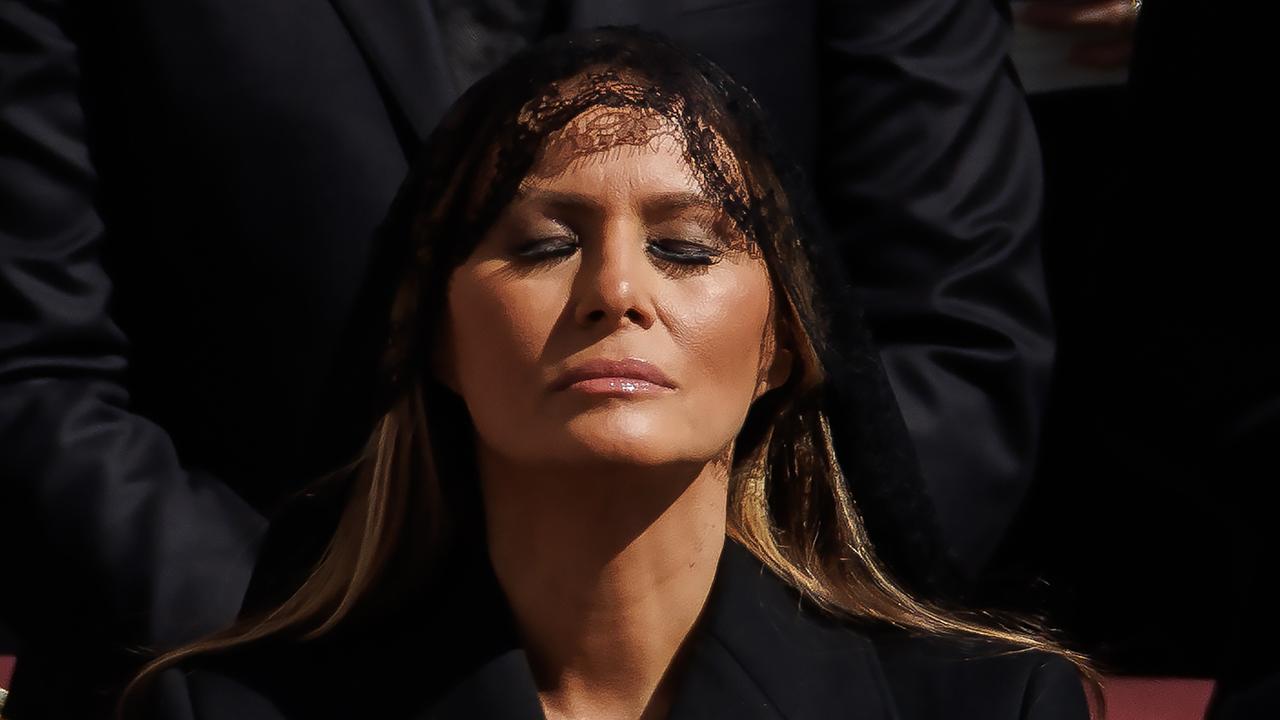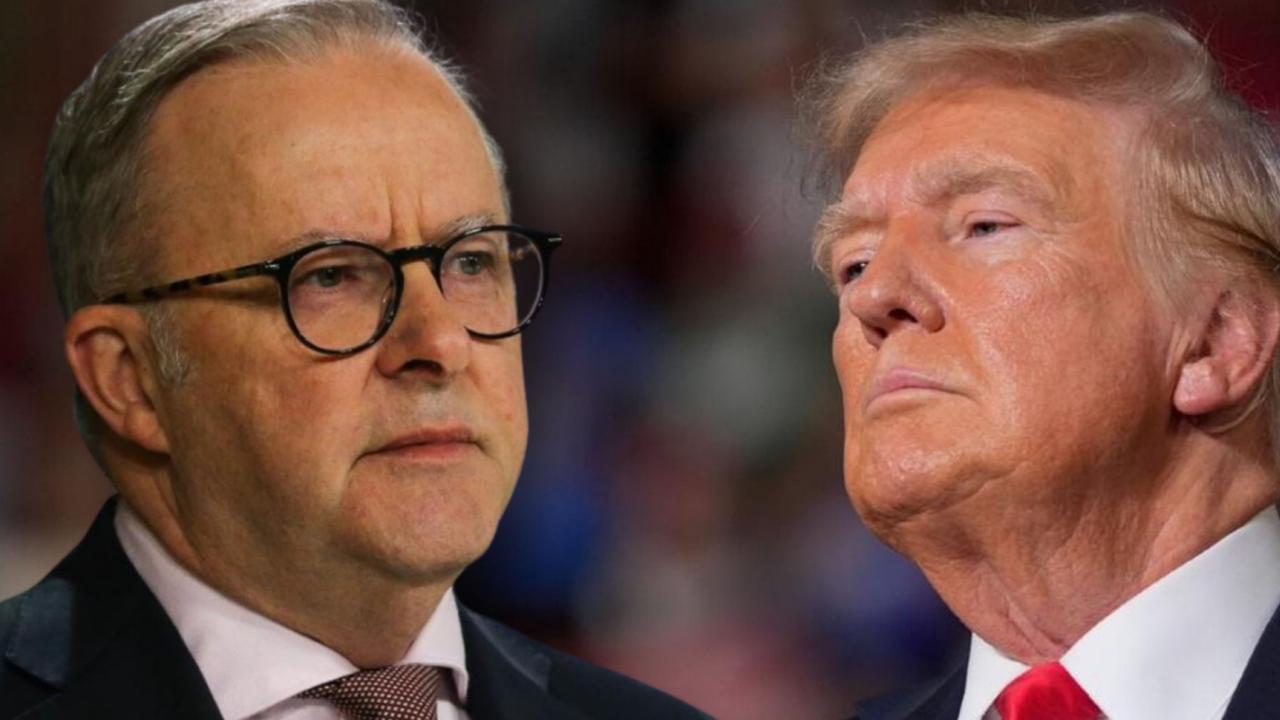Australia hails European Medicines Agency’s ‘safe, effective’ AstraZeneca vaccine ruling
Australia has welcomed the European health regulator’s verdict on the AstraZeneca jab, as major EU countries resumed using it in their vaccination rollouts.
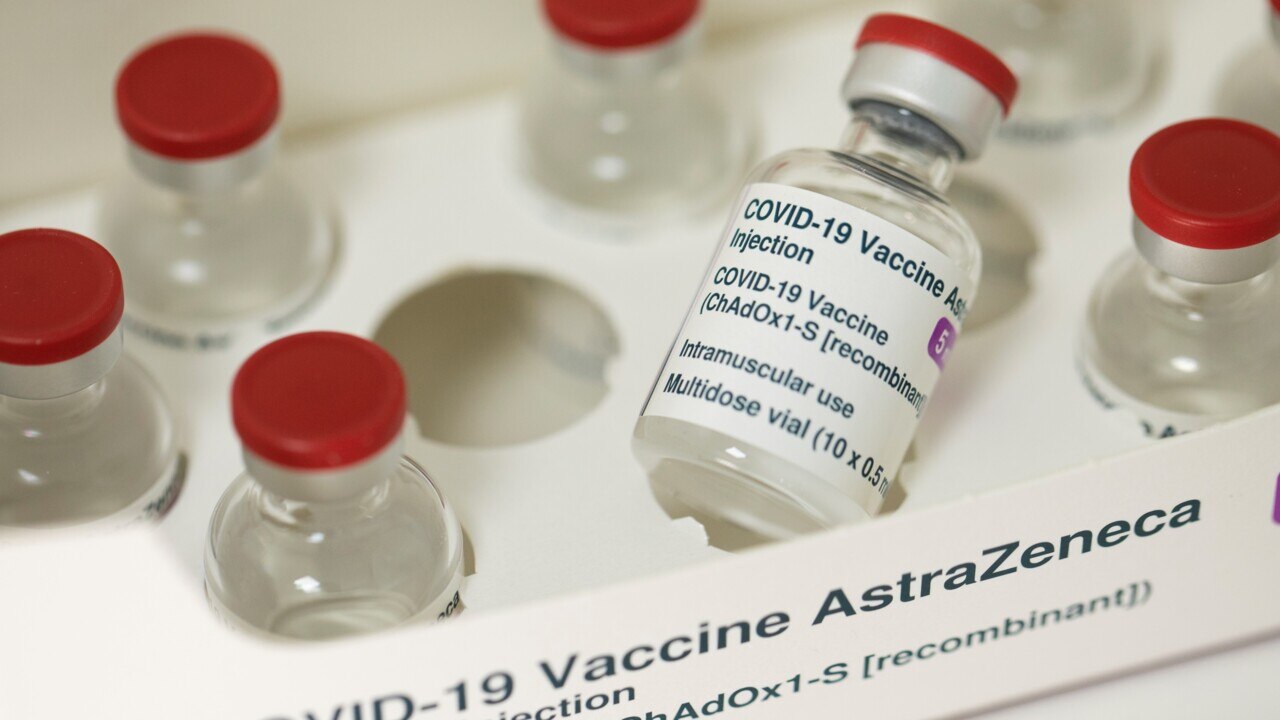
News
Don't miss out on the headlines from News. Followed categories will be added to My News.
Australian authorities have welcomed the European drug regulator’s finding that the AstraZeneca COVID-19 vaccine remains “safe and effective”.
It comes as major EU countries said they would resume AstraZeneca vaccinations after the jab was given the all clear, and was found not to be associated with a higher blood clot risk after days of commotion around the shot.
The closely-watched announcement made on Thursday (local time) from the European Medicines Agency (EMA) came after the WHO and Britain’s health watchdog both said the vaccine was safe, adding that it was far riskier to not get the shot as several countries face a worrying rise in coronavirus cases.
Health Minister Greg Hunt welcomed the development after Australian health experts stood firm against pressure for it to suspend its rollout while Europe investigated the reports.
“AstraZeneca is safe and effective,” Mr Hunt told Sky News.
“It is saving lives and it is protecting lives and it will do that here in Australia.”
“Our goal remains for first doses, for all Australians that seek it, by the end of October.”
Mr Hunt said Australia was likely to pass the 250,000 vaccines mark on Friday.
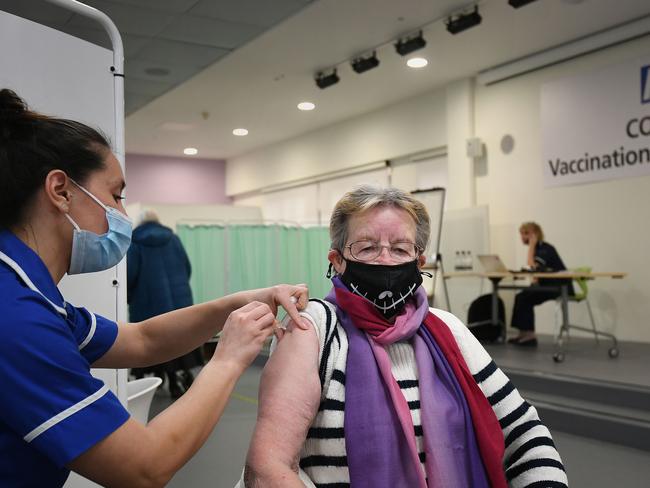
Treasurer Josh Frydenberg said it was good news the AstraZeneca vaccine was given the green light from European regulators.
“Here in Australia we’ll be relying on the AstraZeneca vaccine and also the Pfizer vaccine,” Mr Frydenberg told ABC Breakfast.
“But the fact that we’ll be making the AstraZeneca vaccine here under licence of CSL gives us a big edge because we have a manufacturing capability that so many other countries don’t.”
France on Thursday (local time) became the latest nation to toughen COVID restrictions, announcing a month-long limited lockdown for Paris and several other regions to try and stave off a third wave of infections that has overwhelmed hospitals.
It also said it would resume AstraZeneca vaccinations after the EMA announcement, along with EU countries Germany, Spain, Italy, the Netherlands, Portugal, Slovenia and Bulgaria.
“The committee has come to a clear scientific conclusion: this is a safe and effective vaccine,” EMA chief Emer Cooke said Thursday after a probe by the body’s safety committee.
“The committee also concluded that the vaccine is not associated with an increase in the overall risk of thromboembolic events or blood clots,” she added.
The EMA said however that it “could not rule out definitively” a connection to a particularly rare type of clotting disorder and would update the vaccine’s product information.
“During the investigation and review we began to see a small number of cases of rare and unusual but very serious clotting disorder and this then triggered a more focused review,” she said.
“Based on the evidence available, and after days of in depth analysis of lab results, clinical reports, autopsy reports and further information from the clinical trials, we still cannot rule out definitively a link between these cases and the vaccine.”
The new warning in the vaccine information would draw attention to the “possible rare conditions” to help patients and healthcare professionals “stop and mitigate any possible side effects.”
The EMA was launching a further probe into the rare cases, she added.
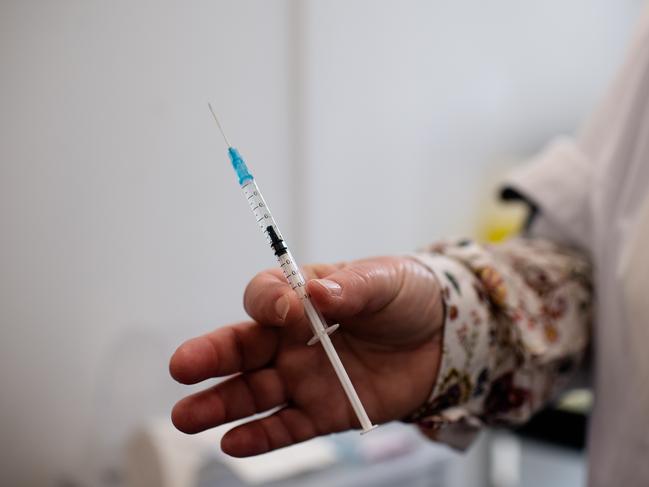
It comes as Britain’s health regulator said on Thursday (local time) it had not found any direct links between AstraZeneca’s vaccine and blood clots after a slew of countries halted the shot over health fears.
The agency also said there were no ties to clots and the Pfizer vaccine, and incidents were no higher in vaccinated groups than among the unvaccinated.
“There is no evidence that blood clots in veins is occurring more than would be expected in the absence of vaccination, for either vaccine,” said June Raine, chief executive of the independent Medicines and Healthcare products Regulatory Agency (MHRA).
The World Health Organisation on Thursday (local time) renewed a call for countries to continue the use of AstraZeneca’s COVID-19 vaccine, as reports by the EU and UN agencies were released.
However Norway and Sweden said they were not ready to resume using the vaccine. The Norwegian Institute of Public Health said it “took note” of the EMA’s ruling, but it was “premature” to draw conclusions and it would announce its own opinion by the end of next week.
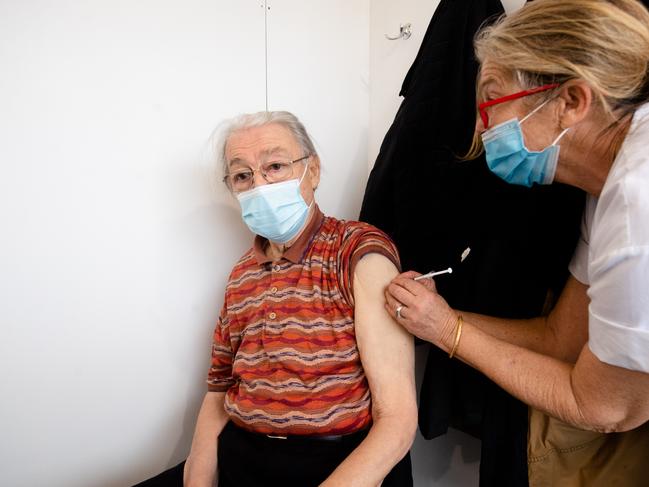
UK: VACCINE SHORTFALL WON’T SLOW EASING OF LOCKDOWN
Meanwhile, Britain insisted that its plan to ease coronavirus lockdowns in the coming months remained on track, despite a vaccine supply shortfall from India which will hit the inoculation drive in April.
The state-run National Health Service in England has warned in a letter to local vaccination centres that doses will be “significantly constrained” from March 29 for four weeks.
The next phase of the inoculation campaign, covering people in their 40s, will have to be suspended until May, the letter said.
The problem is linked to a delay in getting new jabs from India by UK-based drugs giant AstraZeneca -- the same company whose supply issues have caused anger in the European Union.

“It’s a very complex international supply chain and that does mean occasionally we will experience issues and that’s what we’ve experienced right now,” cabinet minister Robert Jenrick told Sky News on Thursday (local time).
But the government was sticking to its target of offering a first dose to every adult by the end of July, ministers said, after Britain on Wednesday said it had surpassed 25 million jabs delivered.
The government’s phased easing of its third lockdown in England, which was imposed in January amid a winter surge in caseloads of COVID-19 and resulting deaths, hinges on the success of the inoculation drive.
“There’s no reason to believe the roadmap is affected by this temporary shortage in supply,” Mr Jenrick stressed of the relaxation plan.
AUSTRALIA FACES JAB DELAY AMID EUROPE DRAMA
Earlier, the EU threatened to invoke emergency powers to block European exports of COVID-19 vaccines to ensure “reciprocity” with other suppliers, urging Britain to send Europe more jabs.
“All options are on the table,” the former German defence minister said, warning that the vaccine situation would be addressed among EU leaders at talks next week.
“We are in the crisis of the century, and I’m not ruling out any anything for now, because we have to make sure that Europeans are vaccinated as soon as possible,” she said and briefly alluded to emergency powers last used during the OPEC oil shock of the 1970s. The powers would not only mean the EU could impose export bans, they could also seize all vaccine factory production and waive intellectual property rights.

An export ban could frustrate Australia which was expecting to receive millions of doses of the AstraZeneca and Pfizer vaccines from European factories before the end of the year.
Last week, Italy blocked 250,000 doses of the AstraZeneca jab from being exported to Australia. Prime Minister Scott Morrison asked the European Commission to review the decision, but said losing “one shipment” would not severely affect the Australian rollout.
It’s also unclear how the EU will respond to Mr Morrison’s request for one million of Australia’s contracted vaccine doses to be redirected to Papua New Guinea.

Europe’s vaccination campaign has struggled to get off the ground due to delayed deliveries, as well as a bitter row with pharma giant AstraZeneca and fears over the safety of its vaccine.
The EU has already set up special oversight of vaccine exports in which manufacturers contracted to supply Europe must declare if they intend to export doses outside the bloc.
Most of the EU’s worry is over Britain, home of the AstraZeneca vaccine, where the inoculation campaign has progressed at a much faster pace than in the EU.
Brussels has accused London of operating a de facto export ban to achieve its vaccine success, a claim furiously denied by Prime Minister Boris Johnson’s government.
But Ms von der Leyen on Wednesday (local time) said the EU was “still waiting” for its AstraZeneca orders to come out of “two sites in the UK”, despite the fact that 10 million doses from other manufacturers had entered Britain from the EU.
“This is an invitation to show us that there are also doses from the UK coming to the European Union, so that we have reciprocity,” she said.
In its response, Britain said Brussels had previously pledged to allow drugmakers to deliver on their contracts.
“We expect the EU to continue to stand by its commitment,” a UK spokesperson added.
JOHNSON & JOHNSON JAB EFFECTIVE AGAINST VARIANTS
Meanwhile, the WHO’s expert vaccine advisers also recommended Johnson & Johnson’s COVID-19 jab for use in countries where coronavirus variants of concern are circulating.
The World Health Organisation gave its seal of approval on Friday to the vaccine, which has the advantages of being a single-shot jab that can be stored at regular refrigeration rather than ultra-cold temperatures.
After meeting on Monday, the WHO’s Strategic Advisory Group of Experts (SAGE) on Immunisation issued its recommendations on how the vaccine should be used — and said it had proven effective against what are termed variants of concern.
Comparing mass trials of the vaccine in different countries, SAGE said that despite the South African variant being predominant in that country, “similar efficacies were observed as in the US”, it said, “where newly-emerging variants of concern were not predominant” during testing.
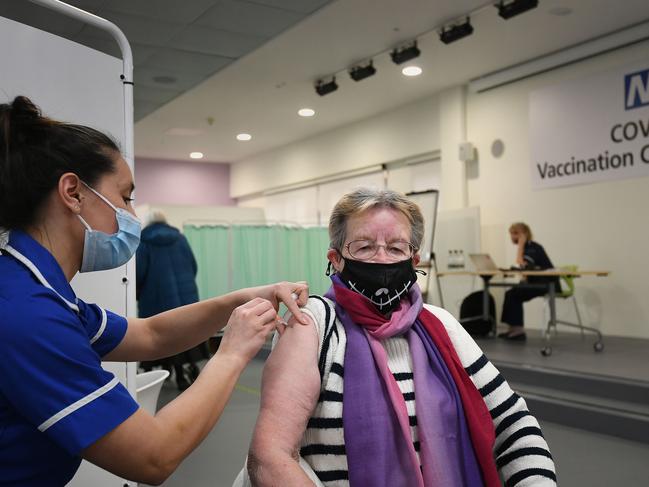
The same was true in Brazil, which has had its own predominant variant in circulation.
“We have a vaccine that shows to be safe and it shows to have the necessary efficacy to be recommended by us for use in people above the age of 18, without an upper age limit,” SAGE chair Alejandro Cravioto told reporters.
“In the countries where there is a high spread of the variants and in countries where we now have information about the use of this vaccine to control SARS-CoV-2 caused by these variants, we recommend that you use it.” SARS-CoV-2 is the virus that causes COVID-19 disease.
- with Jade Gailberger



